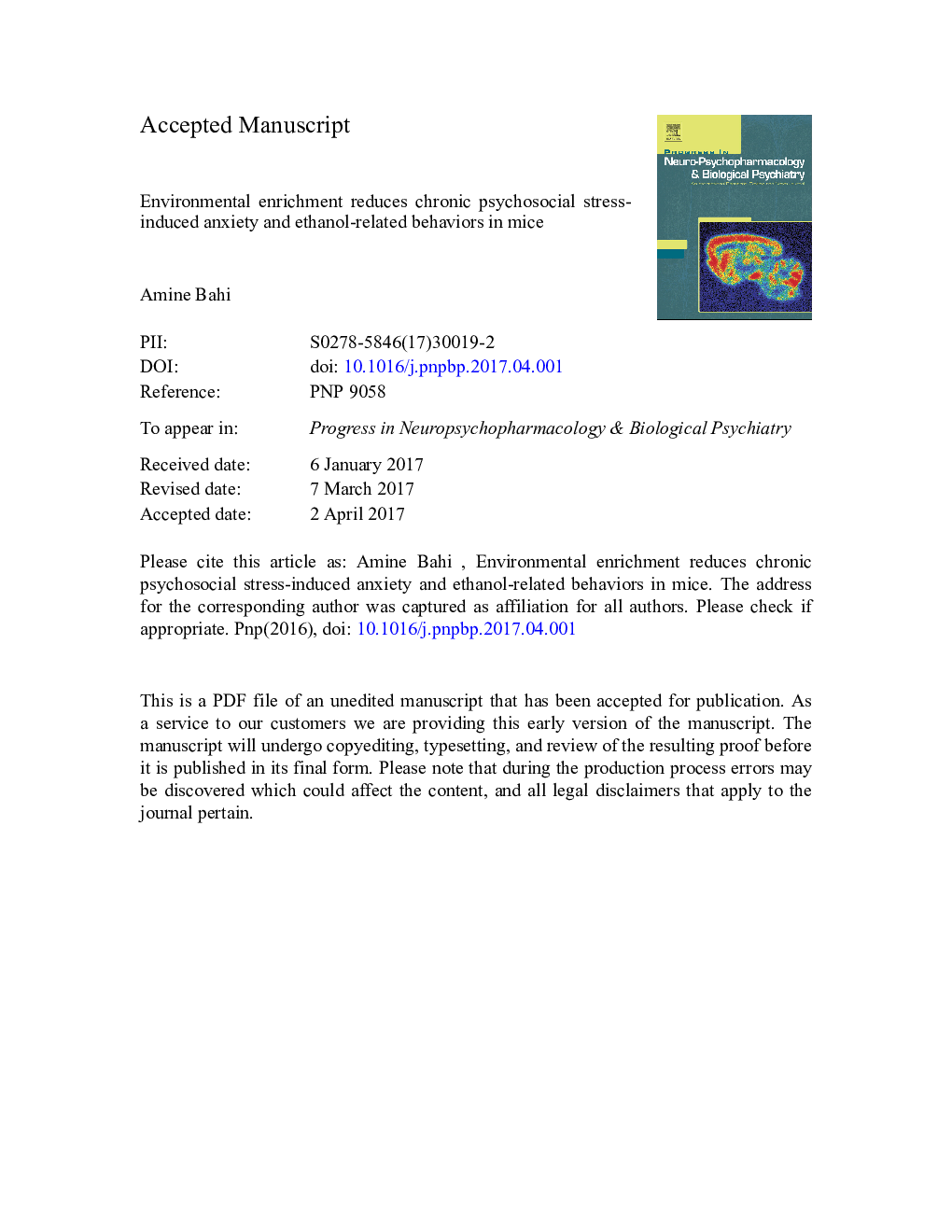| Article ID | Journal | Published Year | Pages | File Type |
|---|---|---|---|---|
| 5558045 | Progress in Neuro-Psychopharmacology and Biological Psychiatry | 2017 | 44 Pages |
Abstract
Previous research from our laboratory has shown that exposure to chronic psychosocial stress increased voluntary ethanol consumption and preference as well as acquisition of ethanol-induced conditioned place preference (CPP) in mice. This study was done to determine whether an enriched environment could have “curative” effects on chronic psychosocial stress-induced ethanol intake and CPP. For this purpose, experimental mice “intruders” were exposed to the chronic subordinate colony (CSC) housing for 19 consecutive days in the presence of an aggressive “resident” mouse. At the end of that period, mice were tested for their anxiety-like behavior using the elevated plus maze (EPM) test then housed in a standard or enriched environment (SE or EE respectively). Anxiety and ethanol-related behaviors were investigated using the open field (OF) test, a standard two-bottle choice drinking paradigm, and the CPP procedure. As expected, CSC exposure increased anxiety-like behavior and reduced weight gain as compared to single housed colony (SHC) controls. In addition, CSC exposure increased voluntary ethanol intake and ethanol-CPP. Interestingly, we found that EE significantly and consistently reduced anxiety and ethanol consumption and preference. However, neither tastants' (saccharin and quinine) intake nor blood ethanol metabolism were affected by EE. Finally, and most importantly, EE reduced the acquisition of CPP induced by 1.5Â g/kg ethanol. Taken together, these results support the hypothesis that EE can reduce voluntary ethanol intake and ethanol-induced conditioned reward and seems to be one of the strategies to reduce the behavioral deficits and the risk of anxiety-induced alcohol abuse.
Keywords
Related Topics
Life Sciences
Neuroscience
Biological Psychiatry
Authors
Amine Bahi,
